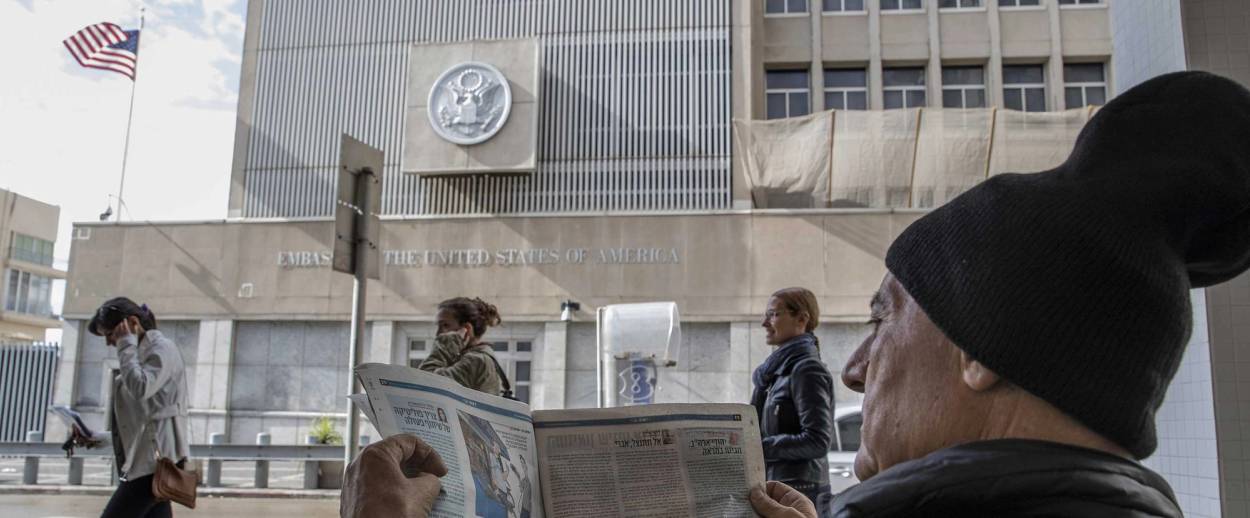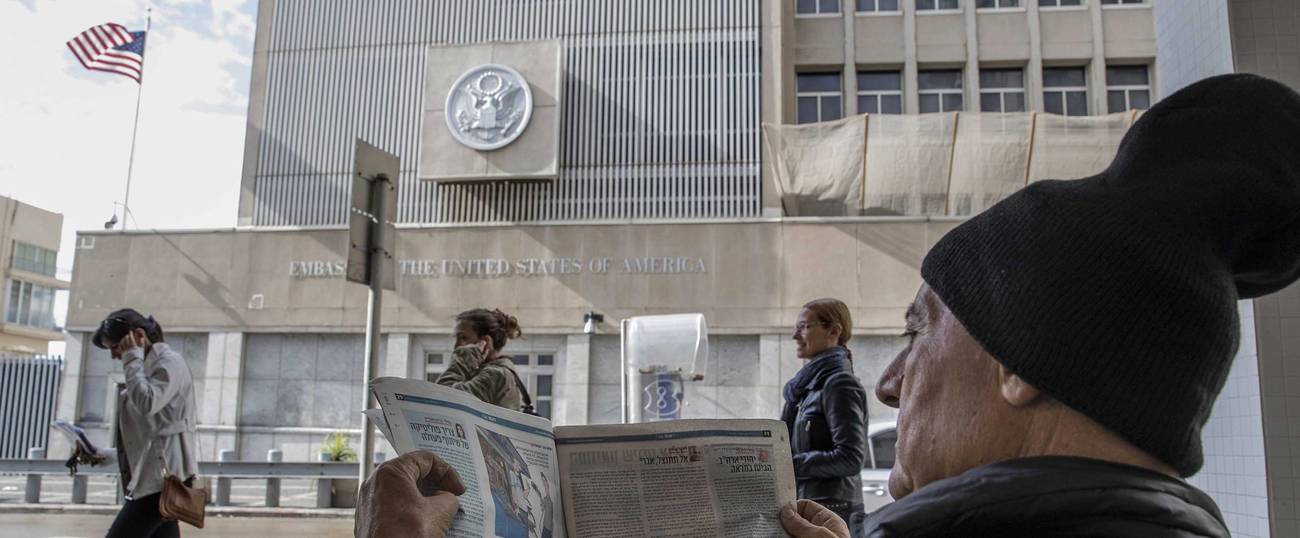Trump’s Embassy Statement
To really stand with Israel, the president will need to reverse the course of his predecessor and stop Iran’s march to regional hegemony. Mere proclamations mean nothing.




It was hard, even for opponents of the president and his decision yesterday, to avoid feeling moved at hearing the words, “today we finally acknowledge the obvious: that Jerusalem is Israel’s capital.”
Still, one could easily argue, without too much cynicism, that declaring something Congress passed into law in 1995 isn’t that daring an act, and that the largely symbolic gesture didn’t make Jerusalem any more or any less the capital of the sovereign nation of Israel, the whole point of sovereignty, of course, being the ability to determine such matters without anyone else’s approval.
Ponder these points a while, and the harsher reality becomes clear: Trump’s words earlier this week mean very little unless backed by action, and when it comes to action, the president, sadly, has so far taken a troubling course as far as Israel is concerned.
To understand this point, it may help to think of America’s options in the Middle East as falling into one of two camps.
The first, to which presidents from both parties from Truman onward have largely subscribed, sees foreign policy as an intricate network of interests and allies, with the administration’s role being to reward America’s friends, deter its enemies by means soft and hard, and protect its strategic and diplomatic assets.
Breaking with tradition, Barack Obama favored a second approach, one that saw Israel, Saudi Arabia, and other countries previously considered America’s allies as burdens instead, not only dragging Washington into costly and unwinnable conflicts but also preventing America from growing past its obsession with its own sense of exceptionalism and becoming a nation like any other. To that end, President Obama retreated from many of America’s commitments in the region, allowing the Iranians to widely expand the reach of their influence—from backing the Houthi rebels who had just assassinated Yemen’s President Saleh to bankrolling Hezbollah’s murderous brigades in Lebanon. Israel, of course, was one of this shift’s biggest losers, with a number of its mortal enemies empowered by America’s exit and Iran’s money. And Russia was arguably its biggest winner, gaining the foothold in the region America had fought bitterly for six decades to deny it.
Judging by the president’s first year in office, Trump, sadly, seems committed to following in his predecessor’s footsteps, with many of the same facilitators in place. Instead of his statement the other day, he could’ve simply refused to sign the waiver that delays the embassy’s mandated move to Jerusalem, in accordance with the 1995 law. He didn’t do that. Nor did he gut Obama’s disastrous Iran deal, another one of his campaign’s promises.
Instead, he leaves untouched a Middle East in which Teheran continues its march towards regional hegemony, gleefully threatening to wipe Israel off the map, failing to prevent Iran from establishing bases inside Syria and completing its takeover of Lebanon while shamefully continuing to fund the Lebanese army, which Iran and its proxies now control. He has also failed to take any significant action to protect the Kurds or to provide Israel with anything more substantial than loud proclamations.
Israel understands this grim reality clearly, which is why it reportedly attacked an Iranian base inside Syria last week. No matter its official statements, Jerusalem knows that it’s now alone in defending itself against a growing roster of threats and that it can’t count on any real help from Donald Trump any more than it could count on Barack Obama.
American Jews would do well to adopt a similar approach and refuse to be played for suckers by yet another president—this one seeking to underline his pro-Israel bona fides from the right, just as Obama sought to underline his bona fides from the left. Those among us who promised that Obama felt his support for Israel “in his kishkes” and would never use a nuclear deal as a device for turning over the keys to the region to Iran faced no shortage of evidence that their beliefs were wishful thinking. And those among us who entertain similar fantasies about Donald Trump’s love for the State of Israel and deep concern for the people of the Middle East have just received yet another wake-up call.
***
Like this article? Sign up for our Daily Digest to get Tablet Magazine’s new content in your inbox each morning.
Liel Leibovitz is editor-at-large for Tablet Magazine and a host of its weekly culture podcast Unorthodox and daily Talmud podcast Take One. He is the editor of Zionism: The Tablet Guide.